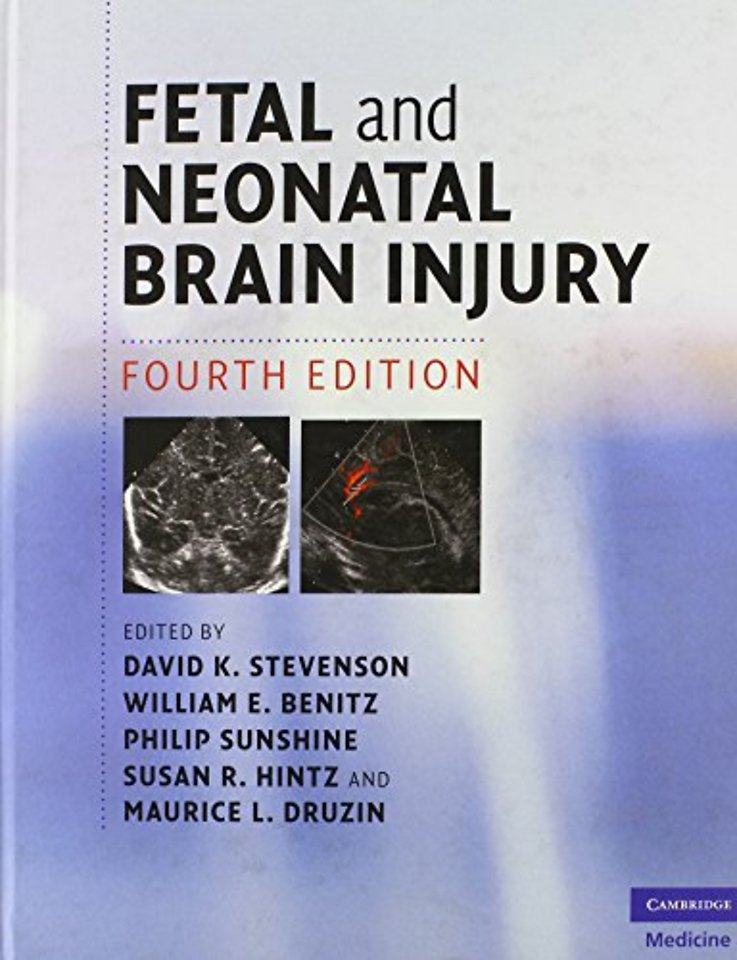1. Neonatal encephalopathy; 2. Mechanisms of neurodegeneration and therapeutics in animal modes of neonatal hypoxic-ischemic encephalophathy; 3. Cellular and molecular biology of hypoxic-encephalopathy; 4. The pathogenesis of preterm brain injury; 5. Prematurity and complications of labor and delivery; 6. Risks and complications of multiple gestations; 7. Intrauterine growth restriction; 8. Maternal diseases that affect fetal development; 9. Obstetrical conditions and practices that affect the fetus and newborn; 10. Fetal and neonatal injury as a consequence of maternal substance abuse; 11. Pregnancy induced hypertension, HELLP syndrome and chronic hypertension; 12. Complications of labor and delivery; 13. Fetal response to asphyxia; 14. Antepartum evaluation of fetal well-being; 15. Intrapartum evaluation of the fetus; 16. Clinical manifestations of hypoxic-ischemic encephalopathy; 17. The use of EEG in assessing acute and chronic brain damage in the newborn; 18. Neuroimaging in the evaluation of pattern and timing of fetal and neonatal brain abnormalities; 19. Light-based functional assessment of the brain; 20. Placental pathology and the etiology of fetal and neonatal brain injury; 21. Correlations of clinical, laboratory, imaging and placental findings as to the timing of asphyxial events; 22. Congenital malformations of the brain; 23. Neurogenetic disorders of the brain; 24. Hemorrhagic lesions of the CNS; 25. Neonatal stroke; 26. Hypoglycemia in the neonate; 27. Hyperbilirubinemia and kernicterus; 28. Polycythemia and fetal-maternal bleeding; 29. Hydrops fetalis; 30. Bacterial sepsis in the neonate; 31. Neonatal bacterial meningitis; 32. Neurological sequelae of congenital perinatal infection; 33. Perinatal human immunodeficiency virus infection; 34. Inborn errors of metabolism with features of HIE; 35. Acidosis and alkalosis; 36. Meconium staining and the meconium aspiration syndrome; 37. Persistent pulmonary hypertension of the newborn; 38. Pediatric cardiac surgery: relevance to fetal and neonatal brain injury; 39. Neonatal resuscitation: immediate management; 40. Improving performance, reducing error, and minimizing risk in the delivery room; 41. Extended management following resuscitation; 42. Endogenous and exogenous neuroprotective mechanisms after hypoxic ischemic injury; 43. Neonatal seizures; 44. Nutritional support of the asphyxiated infant; 45. Early childhood neurodevelopmental outcome of preterm infants; 46. Assessment and management of infants with cerebral palsy; 47. Long term impact of neonatal events on speech, language development and academic achievement; 48. Neurocognitive outcomes of term infants with perinatal asphyxia; 49. Appropriateness of intensive care application; 50. Medicolegal issues in perinatal brain injury.

